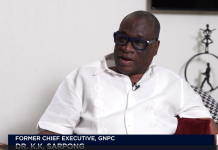Twitter on Thursday suspended the accounts of several prominent journalists who recently wrote about its new owner Elon Musk, with the billionaire tweeting that rules banning the publishing of personal information applied to all, including journalists.

Responding to a Tweet on the account suspensions, Musk, who has described himself as a free speech absolutist, tweeted: “Same doxxing rules apply to ‘journalists’ as to everyone else,” a reference to Twitter rules banning the sharing of personal information, called doxxing.
Musk’s tweet referred to Twitter’s Wednesday suspension of @elonjet, an account tracking his private jet in real time using data available in the public domain. Musk had threatened legal action against the account’s operator, saying his son had been mistakenly followed by a “crazy stalker”.
It was unclear if all the journalists whose accounts were suspended had commented on or shared news about @elonjet.
“Criticizing me all day long is totally fine, but doxxing my real-time location and endangering my family is not,” Musk tweeted on Thursday.
He had tweeted last month that his commitment to free speech extended “even to not banning the account following my plane, even though that is a direct personal safety risk”.
He tweeted on Thursday that there would be a seven-day suspension for doxxing, following that up with a poll asking Twitter users to vote on when to reinstate the doxxed accounts.
He then said he had offered too many options on the poll and would redo it, after results showed that some 43% voted for reinstating the accounts “now” – the largest share for any option.
Twitter did not immediately respond to a request for comment.
The suspensions echo chaotic actions at Twitter since Musk took over, including rapid firings of top management and thousands of employees, seesawing on how much to charge for Twitter’s subscription service Twitter Blue, and reinstating banned accounts, including that of former President Donald Trump.
Twitter now leans heavily on automation to moderate content, doing away with certain manual reviews and favoring restrictions on distribution rather than removing certain speech outright, its new head of trust and safety, Ella Irwin, told Reuters this month.























































![[FREE FREE MONEY] Predict and Win a Guaranteed GH¢200 From Us EVERY WEEK](https://wordpress.ghanatalksradio.com/wp-content/uploads/2022/02/Predict-and-Win-Final-09-03-2021-218x150.jpg)
![[Predict & Win – 8th/Oct.] WIN A Guaranteed ¢200 From Us This Week](https://wordpress.ghanatalksradio.com/wp-content/uploads/2021/10/maxresdefault-16-218x150.jpg)
![[Predict & Win – 2nd] WIN A Guaranteed ¢200 From Us This Week](https://wordpress.ghanatalksradio.com/wp-content/uploads/2021/09/maxresdefault-50-218x150.jpg)
![[Predict & Win – 25th] WIN A Guaranteed ¢200 From Us This Week](https://wordpress.ghanatalksradio.com/wp-content/uploads/2021/09/maxresdefault-36-218x150.jpg)
![[Predict & Win – 18th] WIN A Guaranteed ¢200 From Us This Week](https://wordpress.ghanatalksradio.com/wp-content/uploads/2021/09/maxresdefault-23-218x150.jpg)









![[National cathedral] See full list of churches that have contributed since 2018](https://wordpress.ghanatalksradio.com/wp-content/uploads/2020/09/Ghana-National-Cathedral-GhanaTalksRadio-100x70.jpg)



